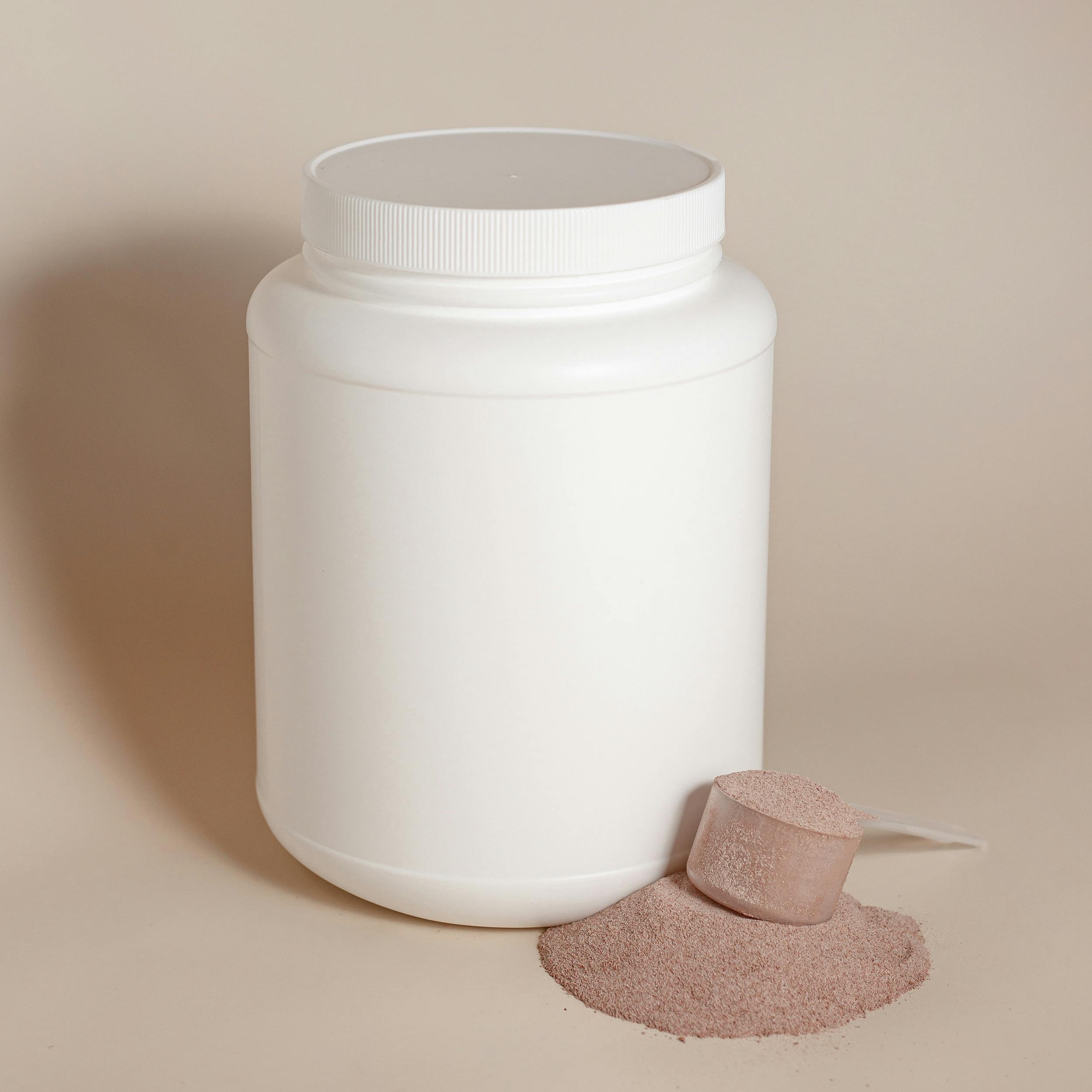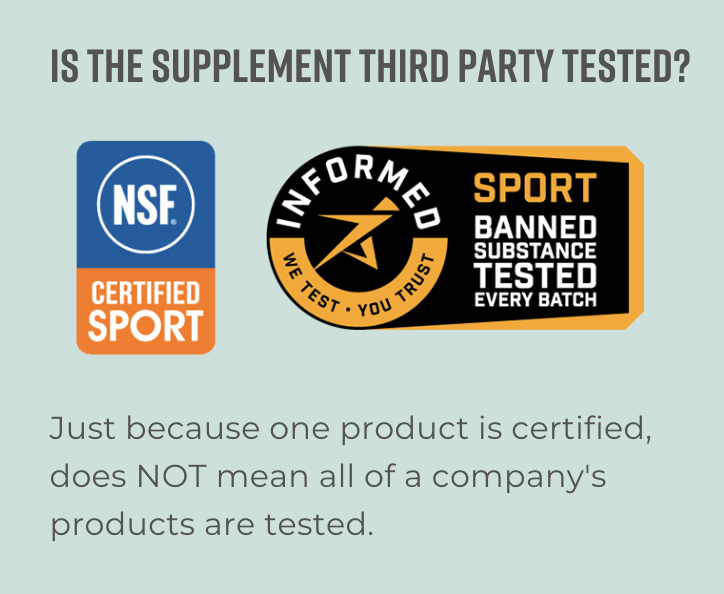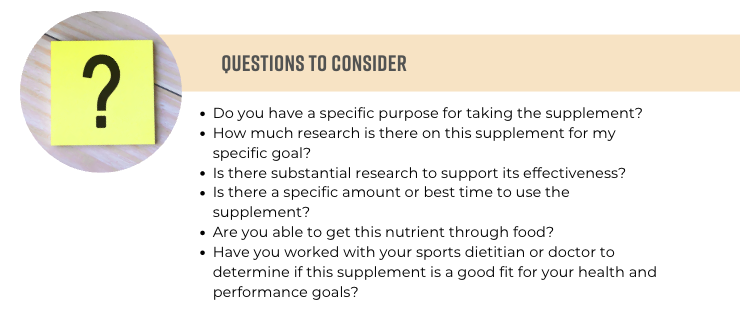The Blog
Supplements 101 for High School Athletes

January 14, 2025
As an athlete, you’re always looking for that extra edge—whether it’s the newest gear, elite coaching, or cutting edge nutrition strategies. One of the most common questions I get asked is, “Should I take this supplement?” My answer? “It depends”.
Supplements are a hot topic, with a TON of information out there—some helpful, some misleading, and some outright dangerous. So, how do you decide if a supplement is right for you? Let’s break it down.
What Are Dietary Supplements?
Dietary supplements are products designed to add to your diet, not replace whole foods. Hence the name ‘Supplement’. They come in many forms: capsules, powders, gummies, bars, and liquids. Common types include:
- Vitamins (like vitamin D and multivitamins)
- Minerals (like calcium and magnesium)
- Amino acids (like BCAAs)
- Botanicals or herbs (like ginger and echinacea)
- Probiotics
- Sports-specific (like bars, gels, and powders)
While supplements can help fill small gaps in your fueling plan, they lack the additional nutrients and benefits of whole foods. For example, salmon has omega-3s along with protein, vitamin D, and other nutrients, compared to the omega-3 and maybe vitamin D in a supplement.
The Risks of Supplements for High School Athletes
The supplement industry is booming, like it is huge! But, not all products are safe. Many athletes assume that because a supplement is sold in stores, it must be regulated and safe. Unfortunately, that’s not always the case.
Here’s what you need to know:
- The FDA does not pre-approve supplements for safety or effectiveness before they hit the shelves.
- Supplement companies are responsible for ensuring their products meet safety standards—a process that isn’t always thorough.
- Supplements may be contaminated with banned substances or have inconsistent dosages.
For high school and college athletes, this is especially important to know. A contaminated supplement could result in a failed drug test, jeopardizing scholarships, team positions, or titles. Even beyond athletics, some supplements can harm your health, affecting your heart, lungs, muscles, and brain.
Research from Informed Sport reveals that 10-15% of supplements may contain prohibited substances. This highlights the importance of caution when choosing supplements.
Choosing Supplements for High School Athletes
If you decide to take a supplement, third-party testing is key. Trusted certifications like NSF Certified for Sport or Informed Sport reduce your risk but testing for banned substances and ensuring the product contains what the label claims.
These certifications are recognized by major organizations, including the NCAA, NFL, MLB, and more. Look for these logos on supplement packaging to reduce your risk.

When Should High School Athletes Consider Supplements
Supplements are not a one-size-fits-all solution. Before reaching for a supplement, work with a Registered Sports Dietitian to evaluate your overall nutrition and training strategy. Often, proper fueling and timing can address gaps without needing to add additional products.
As a sports dietitian, I use a food-first approach with my clients. Once we’ve balanced their fueling plan, we assess whether supplements are necessary, always focusing on safety and effectiveness.

Key Takeaways for Athletes and Coaches
Athletes often turn to coaches, parents, or trainers for supplement advice. If you are in a position to guide an athlete, it’s essential to understand the risks and steer them toward reliable resources.
I use a supplement decision tree when working with athletes. It makes them determine whether a supplement is truly needed or if their goals can be met through food and improved fueling strategies. Find this tool and more the Academy, a sports nutrition library for high school athletes and their parents.
As Hippocrates said, “Let food be thy medicine and medicine be thy food.” Whole foods should always be your foundation, but when supplements are needed, working with a sports dietitian can help you make safe, informed decisions.
By prioritizing your health and nutrition, you’ll feel more energized, focused, and ready to perform at your best.
Be the first to comment